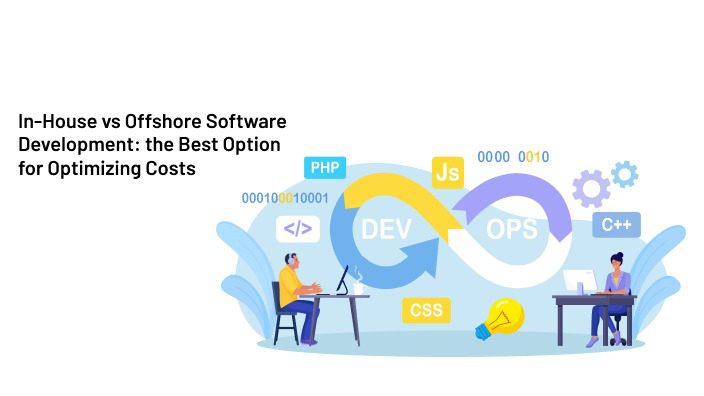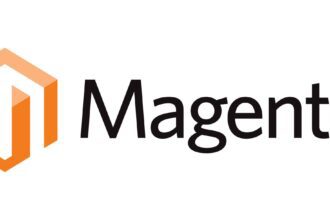
In today’s rapidly evolving business landscape, software development plays a pivotal role in determining a company’s success. When deciding upon software, the first thing that needs to be crosschecked is the budget and cost. This is mainly because the overall cost directly impacts the primary value of the software. When deciding upon a budget, the two major ways followed include in-house and offshore software development. In this blog, let’s get a clearer view of which methods will be perfect for a software development company.
What Exactly is In-house Software Development?
This refers to the exact practice of maintaining software solutions, including a dedicated team of in-house developers. This approach entails recruiting, hiring, and managing a team of software engineers, designers, testers, and other professionals. In-house software development teams effectively collaborate and conceptualize designs for specific software needs.
Advantages
- Direct Control: Opting for in-house development grants businesses direct control over the entire software development process. This level of involvement allows for better alignment with company goals, facilitating real-time modifications as project requirements evolve. Therefore, choosing a software development company with in-house talent is the best option.
- Communication: In-house teams benefit from close physical proximity and enable face-to-face interactions, leading to more transparent communication and faster decision-making.
- IP Protection: Intellectual property remains securely within the organization’s confines, reducing the risk of unauthorized access. This is why most custom software development companies in the USA choose this option for their work prospect.
- Customization: In-house teams can focus on building solutions tailored to the company’s unique needs, avoiding restrictions posed by external considerations.
Drawbacks
- Higher Costs: Running an in-house software development team involves substantial expenses. It includes salaries, benefits, office space, equipment, and ongoing training costs.
- Limited Expertise: Relying solely on local talent can limit access to specialized skills. At times, these specialized skills are crucial for certain projects as well. Thereby, the best software development company in the USA often chooses the other option or a combined one.
- Slower Scaling: Rapidly scaling up or down an in-house team is a complex process that may delay project execution and resource allocation on a long-term basis.
- Resource Drain: Managing an in-house team requires time and effort that could otherwise be devoted to core business activities in a software development company.
What Exactly is Offshore Software Development?
Offshore software development involves outsourcing the creation of software solutions to a third-party service provider located in a different country. Organizations contract with external teams specializing in software skills instead of maintaining an in-house development team. This approach allows businesses to tap into global talent pools and access specialized skills and expertise that might not be readily available locally. If you have a definite requirement for offshore talent, checking when narrowing down to the best software development company in the USA is essential.
Advantages
- Cost Savings: Offshore development offers the opportunity to tap into the regions with lower labor costs, enabling significant savings on the overall project budget.
- Access to Global Talent: Businesses can access a vast global talent pool, giving them access to specialized skills and expertise that might not be readily available locally.
- 24/7 Development Cycle: Time zone differences between onshore and offshore teams can be leveraged for round-the-clock development, leading to faster project completion.
- Scalability: Offshore teams are often more flexible in quickly scaling resources up or down, providing an agile approach to resource allocation. Therefore, offshore is often chosen as the best practice by selected Software development companies in NYC.
Drawbacks
- Communication Challenges: Working with teams across different time zones can result in communication delays and misunderstandings, potentially affecting project timelines and quality.
- Cultural Differences: Differing work cultures and business practices can sometimes lead to challenges in understanding project requirements and aligning goals. Therefore, analyze these factors when narrowing down to a software development company in New York.
- Data Security: Sharing sensitive information and proprietary data with external teams raises valid concerns about data security and intellectual property protection.
- Dependency Risk: Overreliance on an offshore team might create dependency issues, making switching vendors or adapting to changing business needs difficult.
In-house vs offshore software development: How to Choose Choosing the Best Option
Ultimately, the decision between in-house and offshore software development hinges on various factors unique to each business:
Project Complexity: If the project is complex and requires an intricate understanding of internal processes or unique industry requirements, an in-house team might be better equipped to handle the nuances.
Budget Constraints: Offshore development can be a cost-effective solution for projects with limited budgets. Although there might be several communication challenges, using it might be the best option.
Time Sensitivity: Time zone differences in offshore models can be advantageous for projects with tight deadlines, while in-house teams can offer quick responses. Therefore, proper consideration needs to be done when deciding upon a software development company in New York.
Business Strategy: Align the software development approach with your overall business strategy. If technology is a core differentiator, in-house development may be preferred. Offshore outsourcing can provide cost-effective solutions if technology is supportive rather than primary.
Team Composition: Consider the size and expertise of your existing in-house team. If you have a competent team with the required skills, keeping the project in-house might be more cost-effective. Otherwise, outsourcing might be necessary to access specialized expertise.
Project Duration: Offshore development is a better choice for short-term projects due to its scalability and faster completion. In-house development might suit long-term projects requiring consistent maintenance and updates.
Risk Tolerance: Assess your organization’s risk tolerance concerning the project. In-house development offers more control but might come with higher costs and potential resource limitations. Offshore outsourcing might offer cost savings but could pose communication and IP protection challenges.
Employee Skill Development: If you have in-house developers, consider the benefits of exposing them to different aspects of development by working with an offshore team. This can lead to skill enhancement and cross-cultural learning.
The selection process for in-house and offshore teams varies depending on several factors. However, to get the best fit and value, it is best to discuss with a trusted Software development company in NYC for better understanding.
Conclusion
In conclusion, the ideal solution is often a hybrid approach that combines the benefits of in-house and offshore models. This allows businesses to balance maintaining control, optimizing costs, and accessing global expertise. Regardless of the chosen approach, aligning software development strategies with overarching business objectives will ensure that companies make the right decision.








